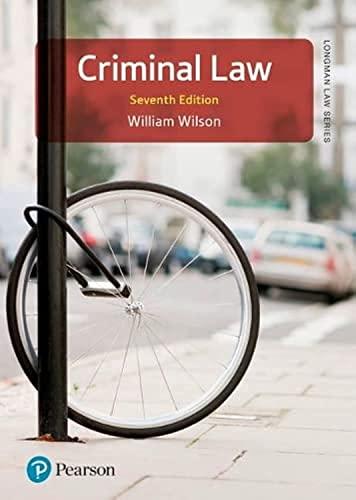Question
Ms Anstis claimed a deduction for education expenses against her youth allowance income, which was denied by the ATO. Ms Anstis (with the assistance of
Ms Anstis claimed a deduction for education expenses against her youth allowance
income, which was denied by the ATO. Ms Anstis (with the assistance of her father, a
lawyer) appealed that the ATO had not applied tax legislation appropriately. The ATO
having lost one case then appealed to the High Court.
The High Court on 11 November 2010 dismissed the Australian Tax Commissioner's
appeal against the decision of the Full Federal Court in of
T v Anstis
. The Full
Federal Court had previously decided that Ms Anstis, who received a youth
allowance as a university student, was entitled to a tax deduction for her education
expenses incurred in order to derive her income.
The full bench of the High Court held that the expenses were incurred in the gaining
of the youth allowance and were not of a private or domestic nature, under the
general deduction provisions. In a media release following the High Court's decision,
the ATO Commissioner said the ATO was considering the decision and would advise
taxpayers on potential claims.
Discuss the following:
What is the role of the ATO as an executive body?
Does it make law?
How does this case reflect the interaction of the different bodies under the
separation of powers doctrine?
What is the significance of the High Court decision in terms of tax law as it is
applied within Australia
Step by Step Solution
There are 3 Steps involved in it
Step: 1

Get Instant Access to Expert-Tailored Solutions
See step-by-step solutions with expert insights and AI powered tools for academic success
Step: 2

Step: 3

Ace Your Homework with AI
Get the answers you need in no time with our AI-driven, step-by-step assistance
Get Started


